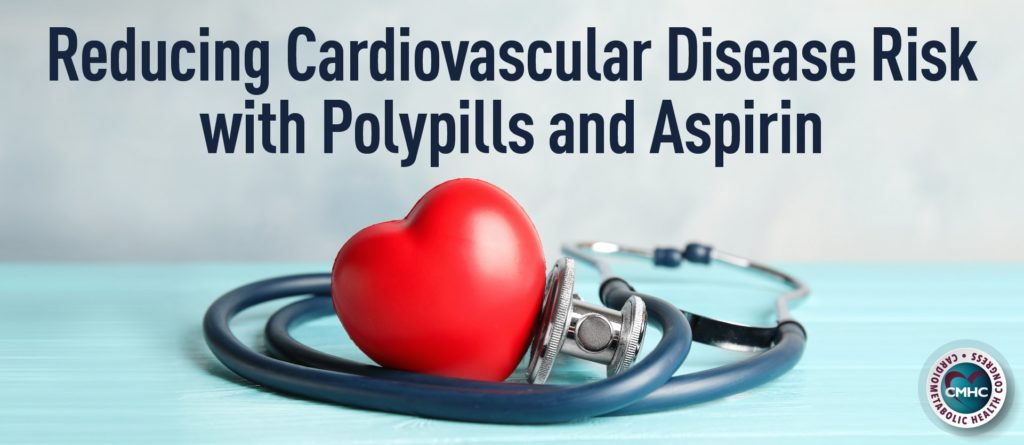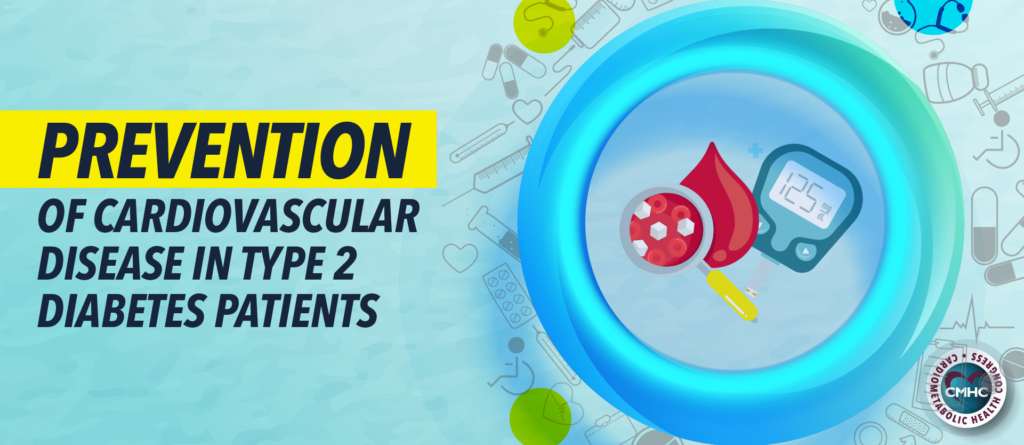Using Artificial Intelligence to Predict CV Risk Assessment

It is well-established that patients with the highest proportion of visceral fat area are more likely to experience a heart attack or other cardiovascular event. While abdominal CT scans can provide a more granular look at body composition when routinely performed, ascertaining risk levels based on fat area is rarely done in clinical practice. Manually […]
Reducing Cardiovascular Disease Risk with Polypills and Aspirin

Lifestyle interventions and preventative medications are central components of prevention strategies targeting cardiovascular disease (CVD) as well as attempts at lowering patient health risk factors. One possible pharmacologic intervention is the use of polypills, which has been found to improve adherence to preventive medications. Fixed-dose combination therapy in the form of a polypill is frequently […]
Prevention of Cardiovascular Disease in Type 2 Diabetes Patients

With a dramatic increase in the prevalence of type 2 diabetes mellitus (T2DM), the unrelenting obesity epidemic, and rising cardiovascular disease-related mortality rates, the management of cardiometabolic risk factors and prevention of the progression to disease are essential steps toward improving population health. The underlying connection between T2DM and cardiovascular disease underscores the significance of […]
The Economic Burden of Cardiovascular Disease

Despite the extensive literature and research that indicates the preventability of cardiovascular disease, it remains a primary and leading cause of not only mortality & morbidity, but also a tremendous health care cost and economic burden. A Vital Signs report recently released by the Centers for Disease Control and Prevention cited that in 2016 alone, […]
Limit Screen Time to Reduce Risk of Cardiovascular Disease

Recent advice from the American Heart Association indicates that children should have limited screen time, as it may contribute to future cardiovascular disease. The AHA has emphasized existing recommendations, which suggest limiting screen time for children & teens to no more than 1-2 hours each day. Pediatric cardiologist Dr. Stephen Daniels, a spokesman for the […]
Vitamin D3 Could Prevent CVD Damage

A new study conducted by researchers and scientists at Ohio University has found that vitamin D3 – a vitamin that is naturally produced when skin is exposed to sunlight – could prevent and restore damage caused by several cardiovascular diseases, including diabetes, hypertension and atherosclerosis. The study shows that Vitamin D3 — which is made by […]
The Harms from Cigarette Smoking

A large study from the BMJ indicates that smokers must quit cigarettes, rather than simply cut back on them, to significantly lower their risk of heart disease and stroke. Statistics demonstrated that those who smoked even one cigarette each day were still about 50% more likely to develop CVD, and 30% more likely to have […]
Simple & Preventive Changes to Combat CVD

Cardiovascular disease has the highest mortality rate in the United States, and billions of dollars are given to pharmaceutical industries each year in order to combat and reduce risks. Yet recent research on cardiovascular risk factors offers renewed hope and optimism regarding heart disease, demonstrating a number of simple life changes to implement in order to prevent […]
USPSTF Advises Lifestyle Counseling on CVD Prevention, Even for Low-Risk Adults
In its latest draft recommendation, the US Preventive Services Task Force (USPSTF) is advising primary care physicians to offer counseling regarding healthy lifestyle habits in preventing cardiovascular disease (CVD), even for adults who are at low risk. The recommendation applies to adults who are 18 years of age and older who are not obese, as […]
More Aggressive Management of Hypertension Reduces Rates of CVD, Lowers Mortality Risk
Initial results of SPRINT (Systolic Blood Pressure Intervention Trial), a landmark clinical trial sponsored by the NIH, have shown that more aggressive management of hypertension significantly reduces the rate of cardiovascular disease and lowers the risk of mortality in a group of adults 50 years of age and older with hypertension. The trial, which began […]













